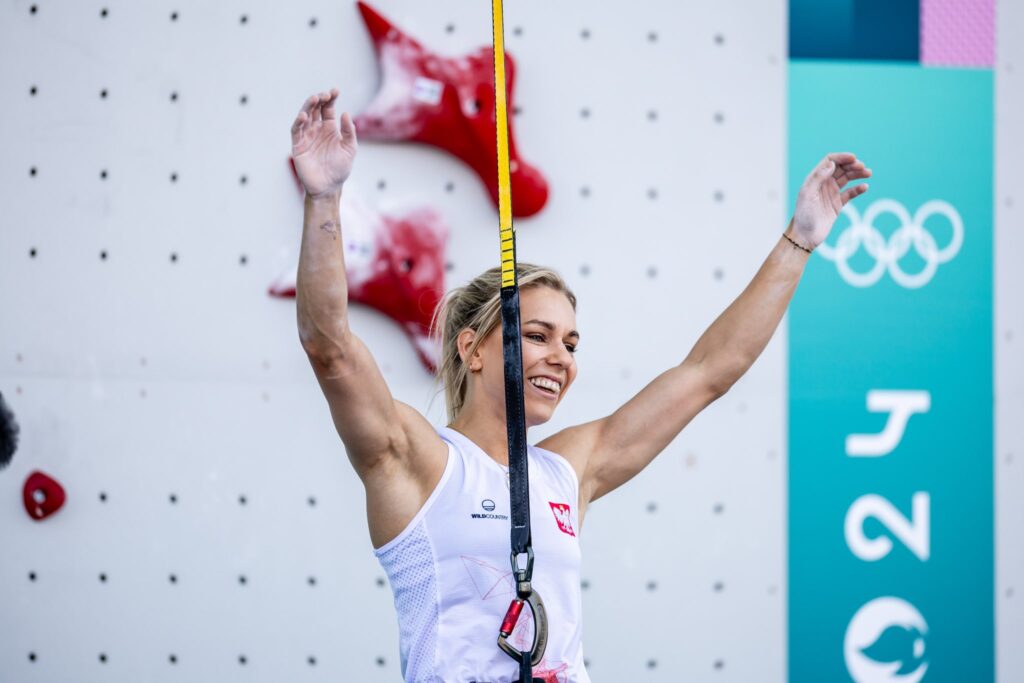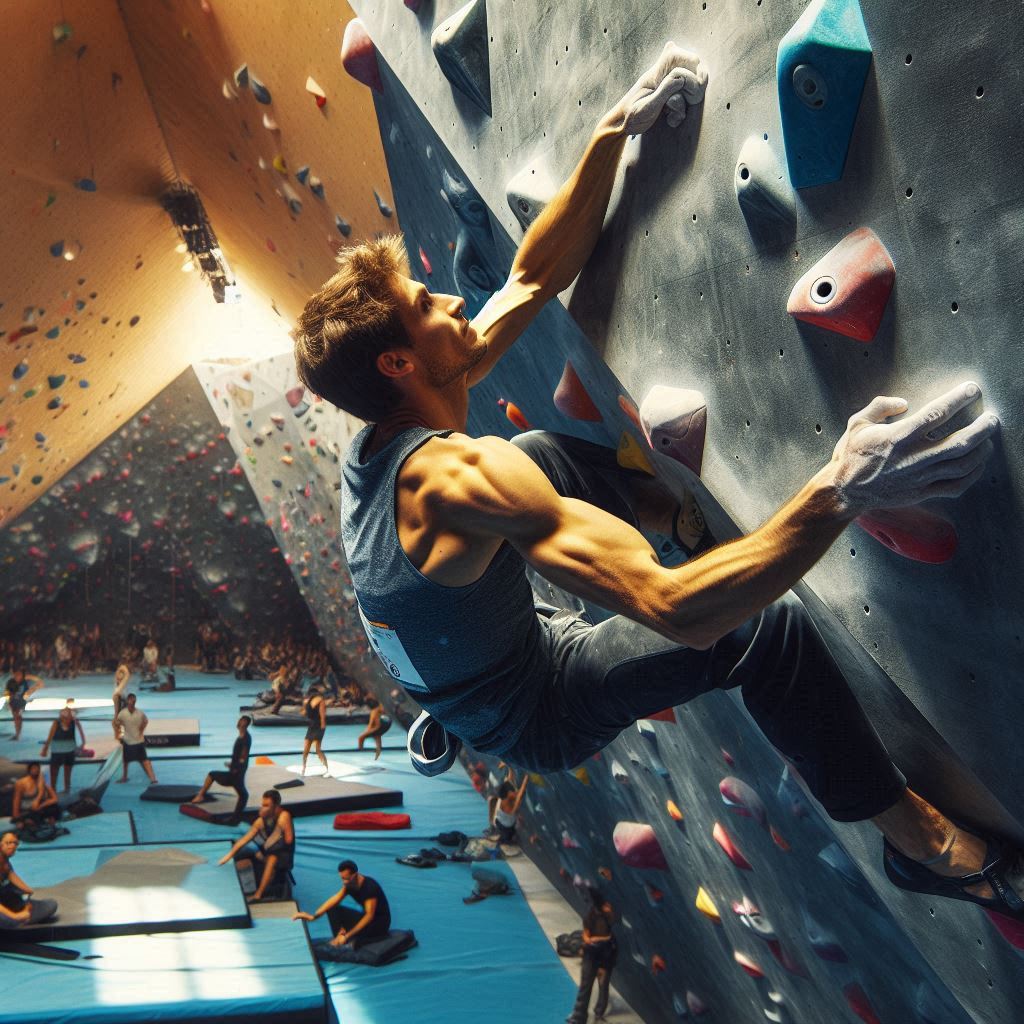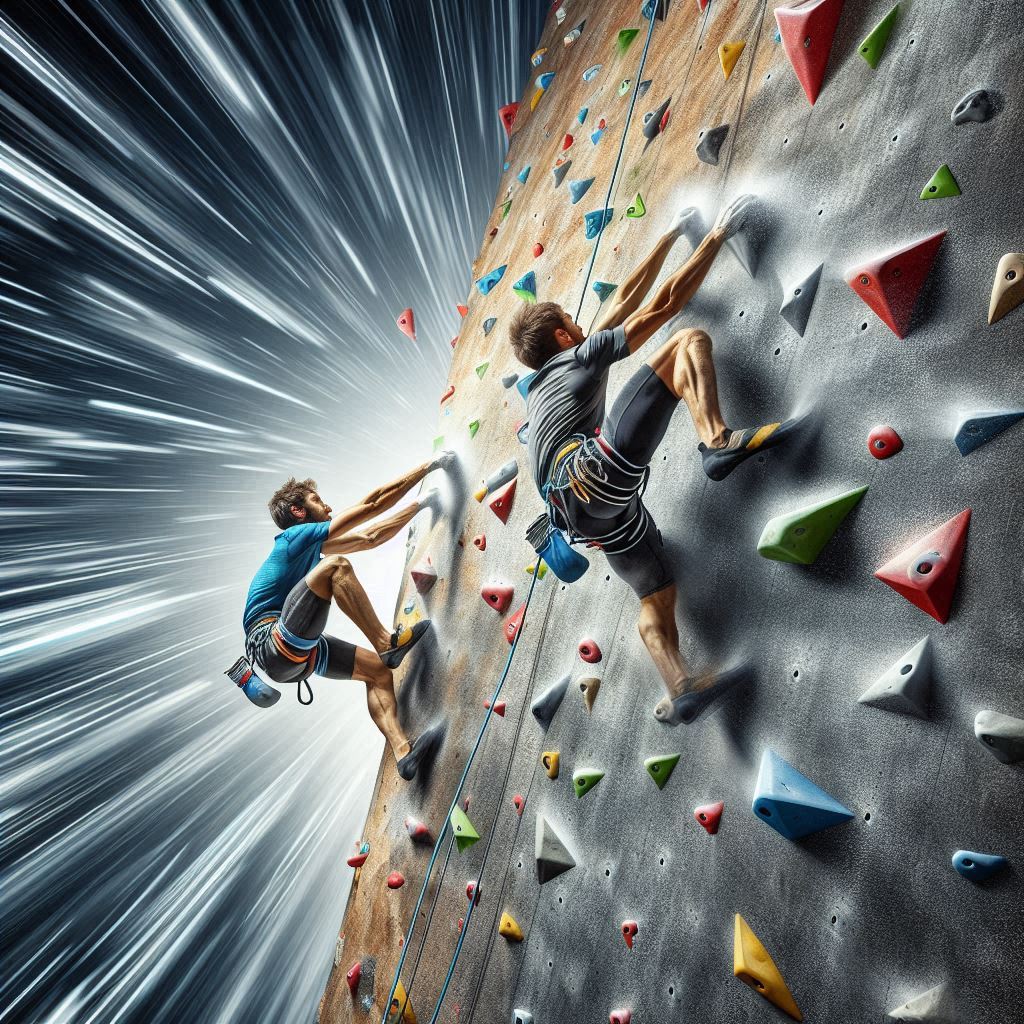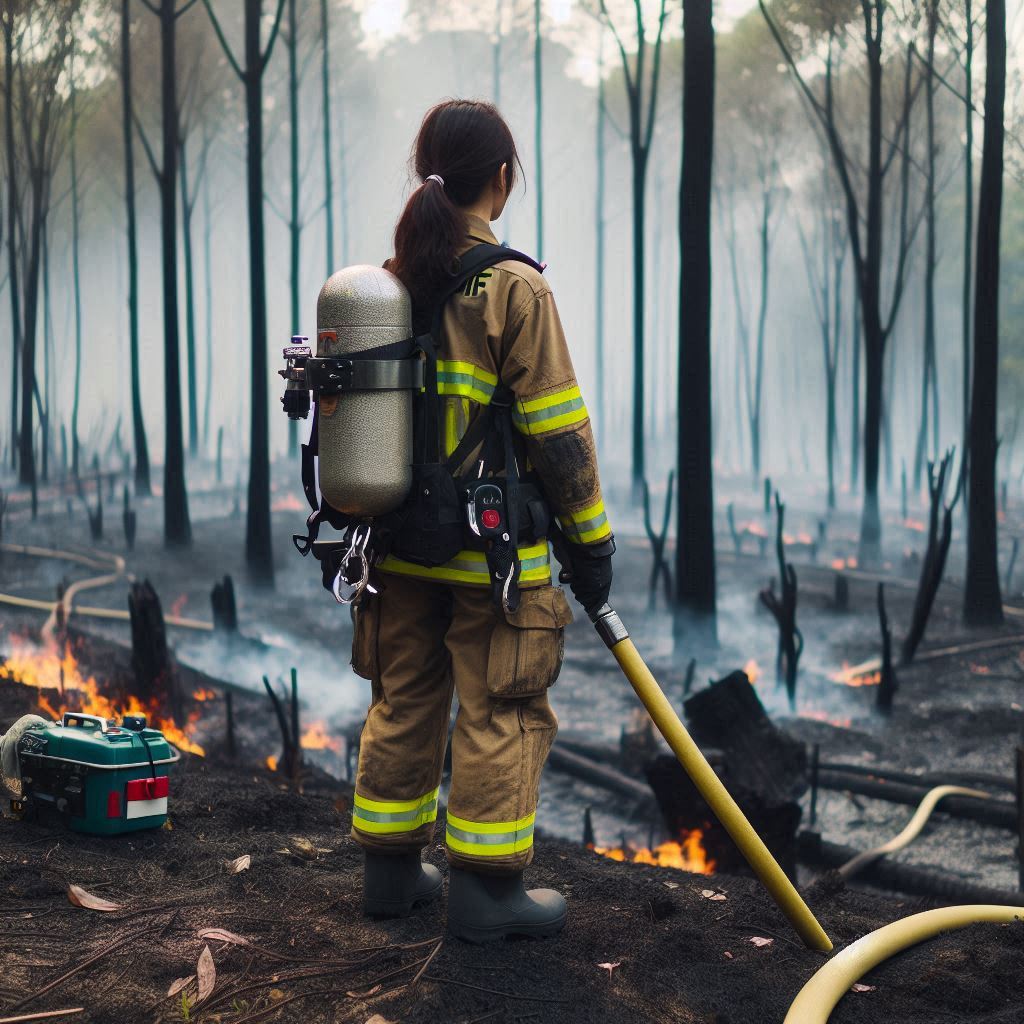The Journey to the Olympics
Sport climbing made its Olympic debut at the Tokyo Games in 2021. Before this monumental inclusion, climbing had caught the Olympic committee’s eye during the Buenos Aires Youth Olympic Games in 2018. Alongside other urban sports like skateboarding and surfing, climbing’s introduction was part of a broader initiative to attract a younger, more diverse audience to the Olympics. This move was aimed at refreshing the Games’ appeal, especially among the youth who increasingly seek out thrilling, non-traditional sports.

Structure of Olympic Climbing
Olympic sport climbing is segmented into three main disciplines: bouldering, lead, and speed climbing.
- Bouldering: This discipline requires athletes to scale a 4.5-meter wall (about 15 feet) without the use of ropes, focusing on solving complex climbing problems within a limited time frame and with as few attempts as possible.

- Lead Climbing: In this event, climbers have a single attempt to ascend as high as possible on a 15-meter wall (nearly 50 feet) within six minutes. This discipline tests endurance and technical skill.

- Speed Climbing: This is a head-to-head race against both the opponent and the clock on a 15-meter wall with a five-degree incline. The top male climbers can complete the wall in under six seconds, while the best female climbers typically finish in under seven seconds.

Changes for Paris 2024
One significant change from the Tokyo format is the separation of speed climbing into its own standalone event. This adjustment allows athletes to specialize and focus solely on their strongest discipline, enhancing competition quality. In Tokyo, climbers’ scores were a product of their ranks in all three disciplines. In Paris, with speed climbing as an independent event, the scoring for bouldering and lead has been revised. Climbers now aim to accumulate a maximum of 200 points.
Scoring in Bouldering and Lead
Bouldering:
- Points are awarded based on progression up the wall through designated zones.
- The lower zone is worth 5 points, the high zone 10 points, and reaching the top hold is worth 25 points.
- Points are deducted for each failed attempt.
- A perfect round, completing four problems on the first try, scores 100 points.
Lead:
- Climbers score points for successfully holding each of the top 40 holds, with increasing points as they ascend.
- If an athlete reaches but fails to hold the next hold, they receive an additional 0.1 points on top of their previous score.
The Athletes to Watch
Team USA
- Sam Watson: At 18, Watson holds the men’s speed world record with a blistering time of 4.79 seconds. He finished 2023 ranked eighth globally in men’s speed and clinched gold at the Pan American Games in Santiago.
- Natalia Grossman: Grossman is a powerhouse in women’s bouldering, ending last year as the world No. 1 in this discipline and fifth in the combined boulder and lead category. She also took gold in both disciplines at the Pan American Games.
- Brooke Raboutou: A fifth-place finisher in Tokyo, Raboutou has climbing in her blood, being the daughter of former world cup champions Robyn Erbesfield-Raboutou and Didier Raboutou. Fluent in French, Brooke has continued to impress on the international stage.
International Stars
- Janja Garnbret (Slovenia): The reigning women’s gold medalist in Tokyo, Garnbret, will again compete in lead and bouldering. Her dominance in the sport makes her a favorite for gold in Paris.
- Aleksandra Miroslav (Poland): A standout in women’s speed climbing, Miroslav is expected to provide fierce competition in Paris.
- Ai Mori (Japan): A formidable force in women’s bouldering and lead, Mori continues to impress with her consistent performances.
- Rahmad Adi Mulyon and Veddriq Leonardo (Indonesia): These speed climbers are among the best in the world and will challenge for the podium.
- Jakob Schubert (Australia): A four-time world champion, Schubert is a strong contender in men’s lead and bouldering.
The Debate: Climbing’s Place in the Olympics
Since its inclusion in the Olympics, sport climbing has sparked a variety of opinions within the climbing community. Many traditionalists argue that climbing, with its deep roots in nature and exploration, is being overshadowed by the competitive, commercialized nature of the Olympics. They worry that the essence of climbing, which is often about personal challenge and connection with the environment, is being diluted.

However, the Olympics also offer several advantages. The increased visibility can inspire a new generation of climbers, provide more funding and resources for the sport, and elevate the athletes’ profiles. Watching top climbers like Janja Garnbret dominate on an international stage can be incredibly inspiring, even for seasoned climbers who might prefer natural rock to artificial walls.
Personal Reflections on Climbing’s Evolution
For some, like the author of the provided narrative, climbing is deeply personal and inherently anti-competitive. Climbing is about pushing oneself against the rock, finding new routes, and inventing new equipment and techniques. This spirit of innovation and personal achievement stands in contrast to the structured, competitive nature of the Olympics.
The Balance Between Tradition and Progress
Ultimately, the integration of climbing into the Olympics doesn’t have to detract from the sport’s traditional values. The essence of climbing—the personal struggle, the connection with nature, the camaraderie among climbers—remains intact. The Olympics can coexist with these values, offering a platform for the sport to grow while still honoring its roots.
As the 2024 Paris Olympics approach, the spotlight on sport climbing continues to grow. Whether you’re a purist who prefers the raw challenge of natural rock or a fan of the intense competition on artificial walls, there’s no denying the excitement that climbing brings to the Olympic stage. Watching climbers from around the world, including top athletes from Team USA and international stars, strive for gold in Paris will undoubtedly be a highlight of the Games.

While the debate over climbing’s place in the Olympics will continue, the sport’s inclusion is a testament to its growing popularity and the incredible feats of athleticism it showcases. As we cheer on our favorite climbers, let’s remember to celebrate the diverse experiences and personal achievements that make climbing such a unique and beloved sport.




